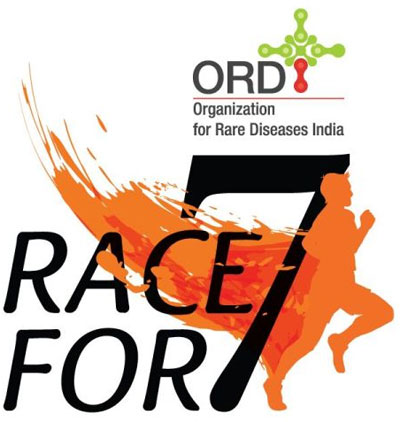With the country’s healthcare judging its patients by statistics, the Bengaluru-based Organisation of Rare Diseases India (ORDI) is drafting a state ‘orphan drug policy’ to aid those afflicted with ‘rare illnesses’.
India doesn’t have an orphan drug policy – named so, due to the research neglect into these drugs – which leaves thousands of sufferers in the lurch, says Prasanna Shirol, founder of ORDI, whose daughter is afflicted by the rare ‘Pompe’ disease.
Category
More than 7,000 diseases are categorised as rare diseases, including Multiple Sclerosis, Autism, Alzheimer’s, Parkinsons and Albinism. “There is a need to screen new-borns as early diagnosis can control the degenerative aspect of these diseases. There should also be a patient’s registry, as patients need intensive, long-term care. In Karnataka, treatment for only a few diseases, such as haemophilia, is free of cost to Below Poverty Line card holders.
There is no policy to tackle rare diseases at large,” he said.
Premroop Alva, from Haemophilia society, Bengaluru-Chapter says, “Karnataka subsidises only haemophilia patients who are below poverty line. With each injection – that needs to be taken every eight hours – costing Rs. 3,000, there needs to be locally developed cheaper drugs. This can be achieved by easing clinical trials.”
Mr. Shirol began the process of accumulation of guidelines
https://healthsavy.com/product/cialis/
after being asked on February 11 by the Karnataka Vision Group for Biotechnology, chaired by Kiran Mazumdar-Shaw, to come out with a draft policy.
Encouraging pharma
The requirement for a policy is imperative, as rare diseases cumulatively affect more than seven crore people in the country. Apart from lack of awareness, even among the medical fraternity, Mr. Shirol says the high cost of treatment here and low clinical research impedes treatment.
The guidelines being developed will be on the lines of the laws adopted by the US and many European countries.
Incentives
“Pharma companies and policy makers are more interested in major diseases as they make financial and political sense. By giving incentives for research into rare diseases, we can develop drugs at a lower cost,” said Vikas Sharma, member of the Indian Council for Clinical Research.
With treatment for most rare diseases not available in India, costs can be prohibitive. Mr. Shirol says his daughter’s treatment can cost up to Rs. 1.75 crore a year.
Entrepreneur Ramgopal Valath, who had been diagnosed with Chronic Inflammatory Demyelinating Polyneuropathy (CIDP), which renders a patient immobile, spent nearly Rs. 85 lakh on clinical trials in the US.
Pharma companies do not invest in medicines for such patients
Link Reference: https://www.thehindu.com/news/national/tamil-nadu/having-a-rare-disease-just-makes-it-worse/article6939410.ece




